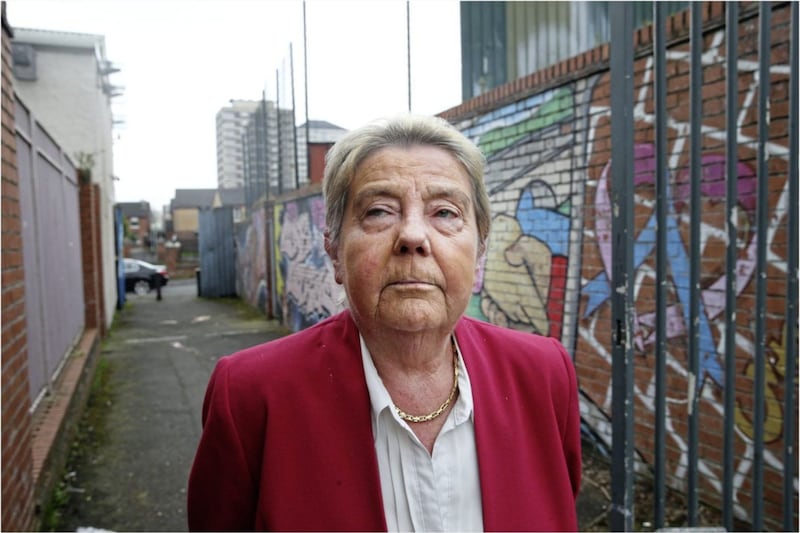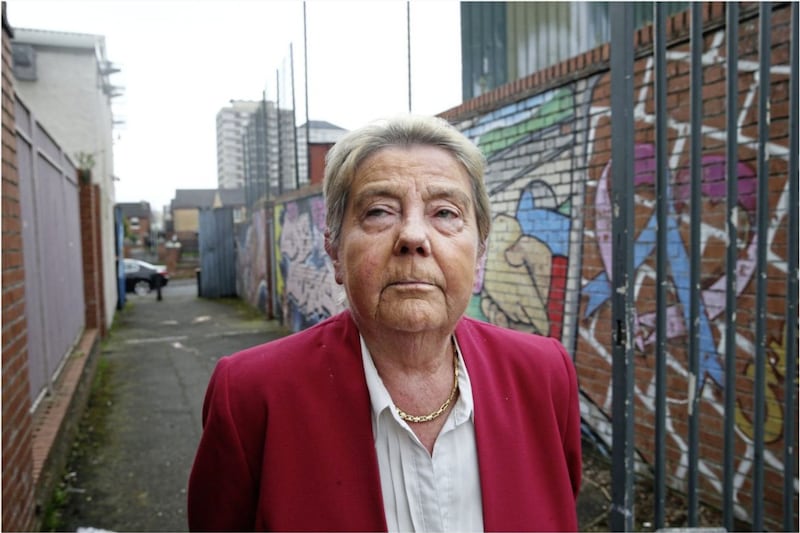The cost of mitigating the effects of the Tories' welfare reforms will be over £20m less per year.
Easing the effects through a series of bespoke devolved measures will be up to £21m a year less than Stormont allocated in the Fresh Start agreement.
The panel headed by Professor Eileen Evason which was asked to recommend how a £585m discretionary fund be targeted over the next four years has estimated that its proposals will cost £84m under budget.
The underspend is forecast despite Professor Evason's report conceding that the most expensive measure proposed will help claimants only in a "very limited way".
The a £35m-a-year 'cost of working allowances' scheme is aimed at working families currently claiming tax credit and latterly universal credit when it is introduced in the north.
Beginning in 2017 and costing a total of £105m, the scheme is recommended even though Prof Evason admits her panel "have not had the time, or resources, to work out the details of this proposal".
Asked by The Irish News yesterday why she did not utilise the entire £585m earmarked by the executive under a Fresh Start, Prof Evason said: "We could've used it – you can always use extra money – but the fact of the matter is first of all you can't compensate people for loss of benefits until they've lost them.
"Secondly, of course we were working within very tight financial architecture."
The benefits expert said she was also keen to ensure she could "stand over" the report's costings.
"It would have been nice to have more money but I take the view that if you take a job, you're given a block of money, you're told how it is arranged then you get on and do it," she said.
Prof Evason said she had recommended to the Office of First Minister and Deputy First Minister that the underspend "go to health".
The total spend does include – partially at least – some of the £240m earmarked in a Fresh Start to help families affected by anticipated tax credit cuts.
Just days after the November's agreement George Osborne ditched his controversial plans in a move that had the potential to create a rift between the DUP and Sinn Féin over where the £60m-a-year fund would go. However, it now appears at least £160m was allocated for welfare mitigation measures.
Elsewhere in Prof Evason's report, a total of £91m is earmarked to pay for Stormont's decision not to implement the so-called 'bedroom tax', while £121m is expected to be paid out over the next four years mitigating the impact of around 120,000 DLA (Disability Living Allowance) claimants switching to PIP (Personal Independence Payment), the timeframe for which has yet to be finalised.
The report advocates compensating PIP claimants who lose more than £10 a week by 75 per cent of the difference for a year. It also proposes that claimants with a conflict-related injury receive special treatment, receiving extra points that make them more likely to qualify for the extra relief.
To address concern that carers for those receiving DLA who do not qualify for PIP would lose their allowance to pay for care, the report recommends a supplementary payment to cover their financial loss for one year from the date entitlement ceases.
While the report envisages that a benefits cap will not have a significant impact in the north, it nonetheless sets aside £25m over four years to assist the 450 families affected. Meanwhile, a discretionary support scheme totalling £35m will replace community care grants and crisis loans previously available under the Social Security Agency's social fund.
A further £24m is allocated over the next two years to supplement claimants when a time limit for claiming Employment and Support Allowance (ESA) is imposed later this year.
Administration of the various schemes outlined in the report is included in the overall cost and estimated at £5m a year.
Prof Evason said the north's bespoke welfare top-ups would be more protective than those available in Britain, where she said some people were dying because of a loss of benefits.
"There is not another part of the UK with a belt and braces system in place to help people through this," she said.
A total of 765,800 households are expected to be affected by welfare reform.
A spokeswoman for the Northern Ireland Office said: "The publication of Professor Evason's report is an important step towards implementation of the Fresh Start and Stormont House Agreements and builds on legislation passed in Westminster and Stormont last year.
"The UK Government will continue to work alongside Northern Ireland's political leaders and the wider community to help build a society where politics works, the economy grows and society is stronger and more united."








